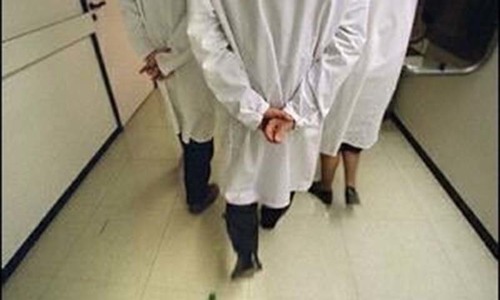PESHAWAR: The authorities have taken notice of private practice by assistant professors of the medical teaching institutions and asked the relevant administration to take disciplinary action against them as it is a violation of law.
The government has been hiring specialist doctors as assistant professors (APs) for medical teaching institutions (MTIs) since the implementation of Medical Teaching Institutions Reforms Act, 2015 on fixed pay. They were given a lump sum package of Rs250,000 per month on the condition that they wouldn’t do private practice outside the hospitals, sources said.
However, half of the more than 600 assistant professors hired by 10 MTIs in the province have been doing private practice in violation of their contracts. The two-page contracts signed by the APs states that they will do institution-based practice (IBP) in evening shift inside their respective MTIs in addition to their morning duties. They are paid additional amount for IBP.
Of late, there have been complaints by deans of MTIs that several of the assistant professors have been running their own clinics or work in private hospitals with senior consultants.
According to contract, assistant professors at MTIs are bound to do institution-based practice
An AP working as civil servant in the MTI gets Rs150,000 per month including Rs50,000 health professional allowance which can be withdrawn by government anytime. So, the salary of an AP as civil servant is Rs100,000, according a dean of an MTI.
The IBP is the main component of MTIRA 2015 under which the patients are seen in the evening shift by consultants and the revenue generated through fee is distributed among doctors and staff involved in the clinical and diagnostic services. The IBP is meant to utilise the space and services of the hospitals in evening and generate income to be spent on strengthening of the general healthcare network.
However, sources said that APs hired under MTIRA 2015 avoided sitting in IBP and preferred to run their private clinics in the evening despite getting high salaries.
The MTIs concerned have allotted clinics to APs where their names plates have been affixed but they aren’t present in the evening shift.
According to the contract, the APs and their families are also entitled to free treatment. They also get seven per cent of their basic pay as provident fun and a matching contribution is made by the employees. If the treatment is not available in their respective MTIs, they can avail free treatment anywhere in the country.
However, these incentives have failed to prevent APs from taking up private practices which prompted the architects of the law to order action against them. The contractual agreement say that MTI may terminate their services on three-month notice or even earlier if they violate the terms and conditions of the contract.
The ‘policy board’ established under MTIRA 2015 has taken notice of the matter on the complaints by deans of MTIs.
“The policy board has sent a letter to all the MTIs asking for clarification on this issue,” Prof Nausherwan Burki, chairman of the MTI policy board, told Dawn.
He said that the board also directed the MTIs to clarify the hiring process of civil servants and if there was any violation they must immediately cease and desist.
There are also complaints that some MTIs are recruiting employees on fixed pay while others give basic pay scale to the newly recruited staff like civil servants.
“Not all the APs are involved in private practice but there are others, who have been doing IBP with dedication and generating good money for themselves and the MTIs,” said a medical director of one of the MTIs.
He said that many of the APs played important role in success of IBP but there were others, who were violating the law by resorting to private practice.
Published in Dawn, August 10th, 2020
















































